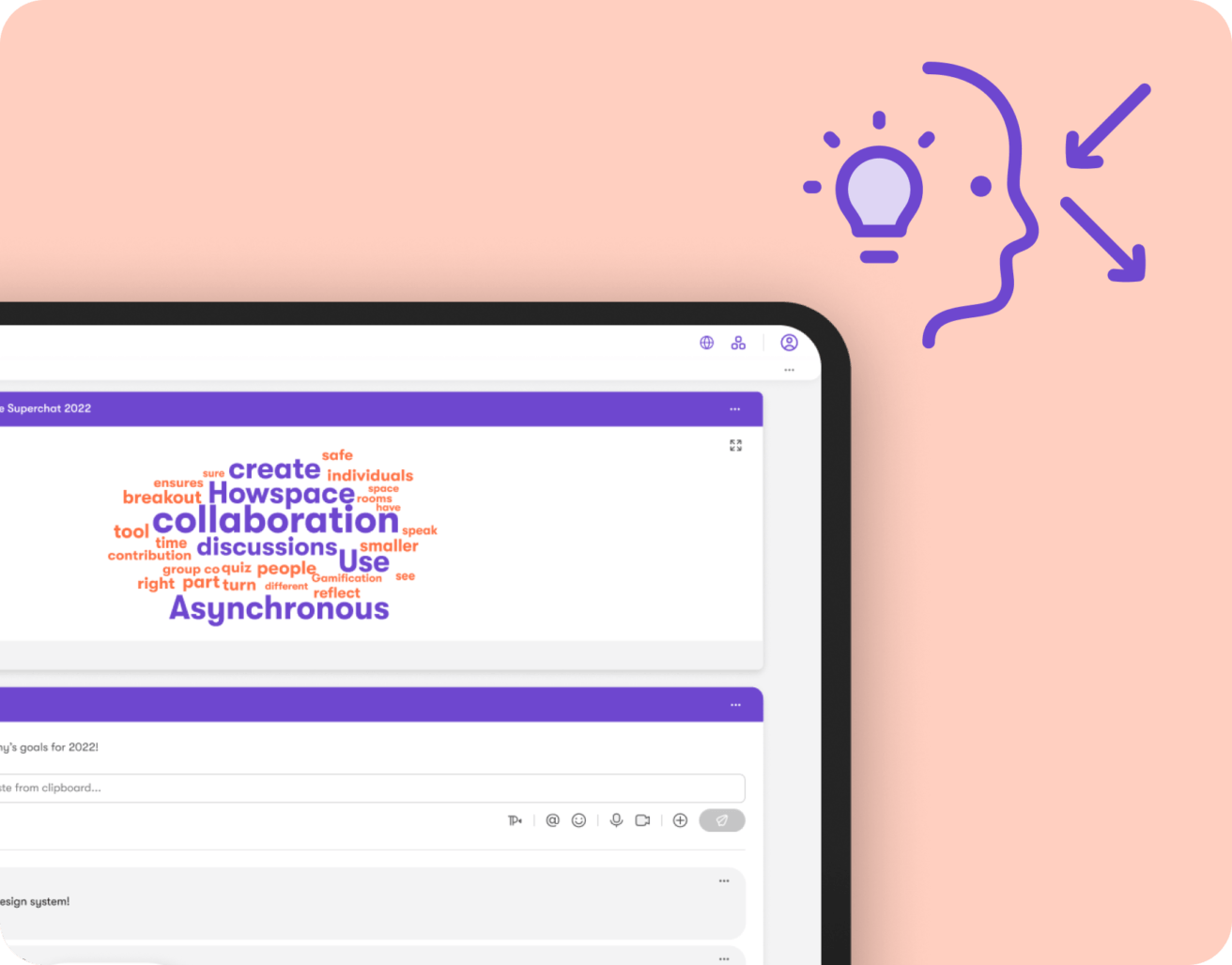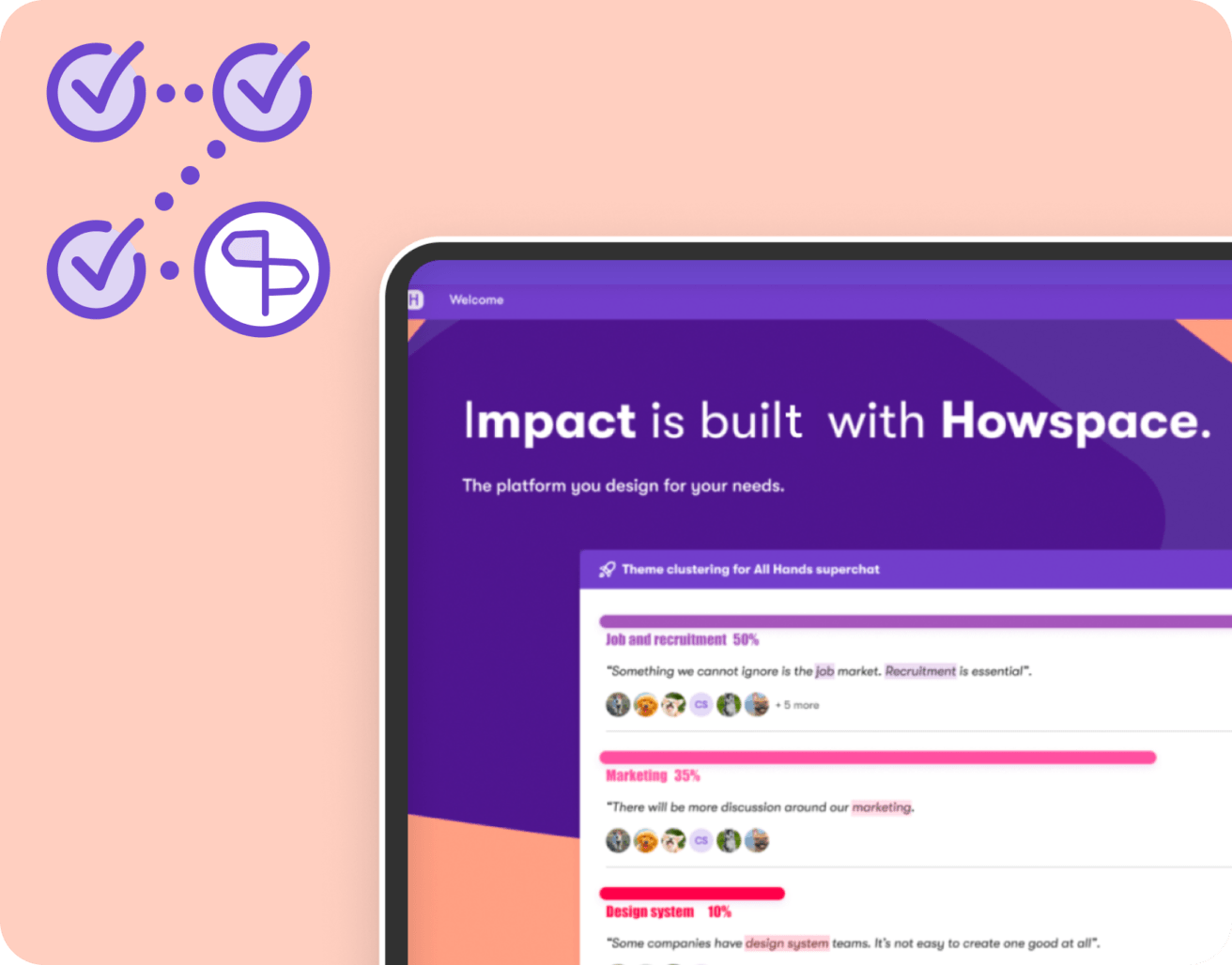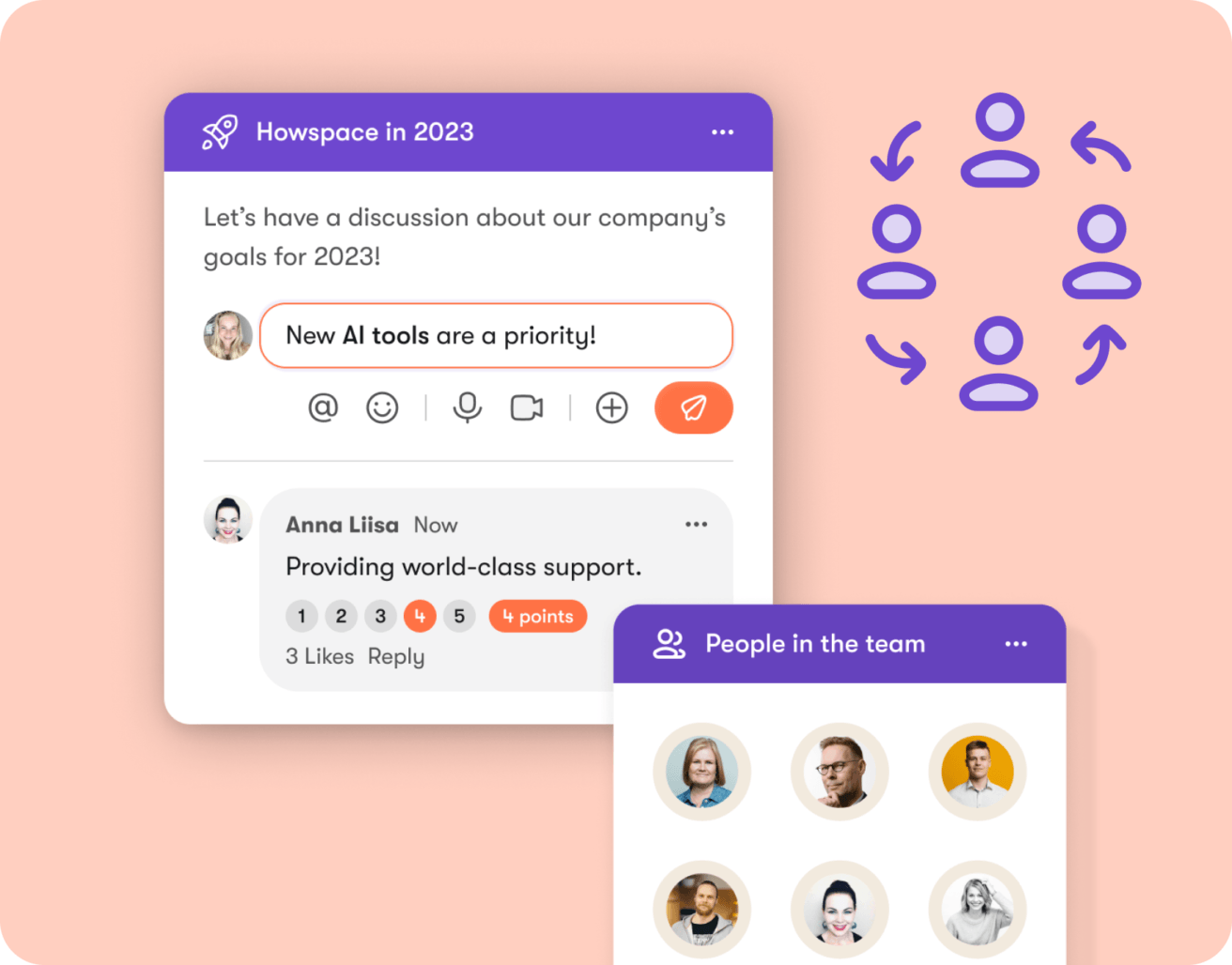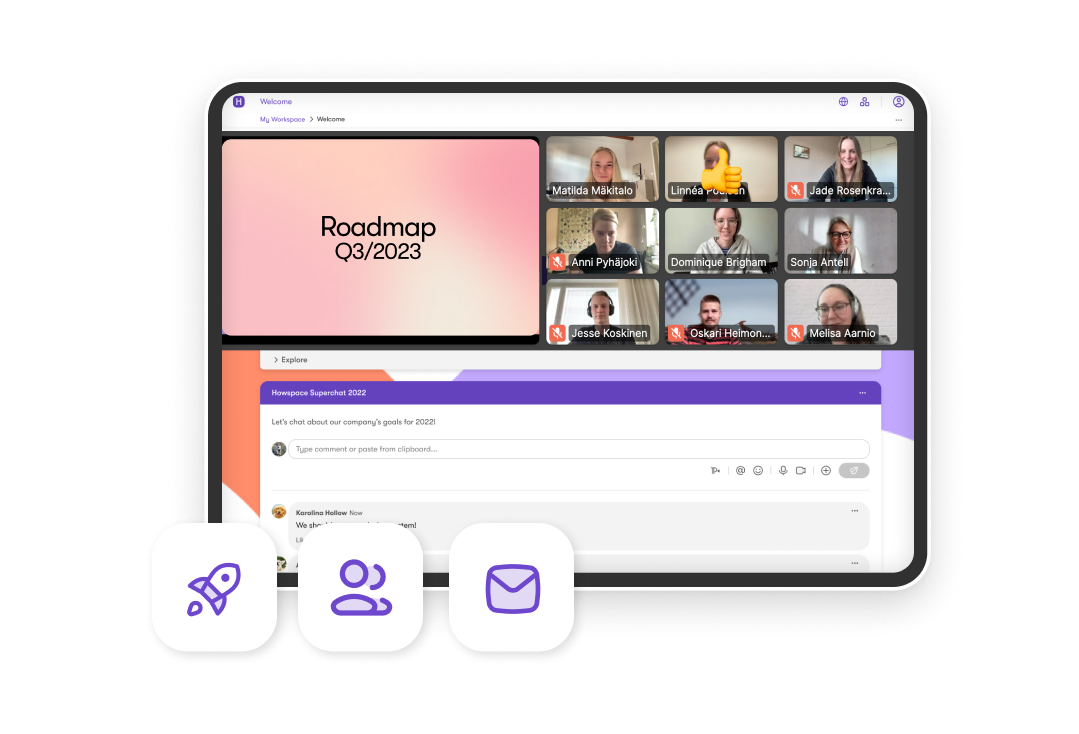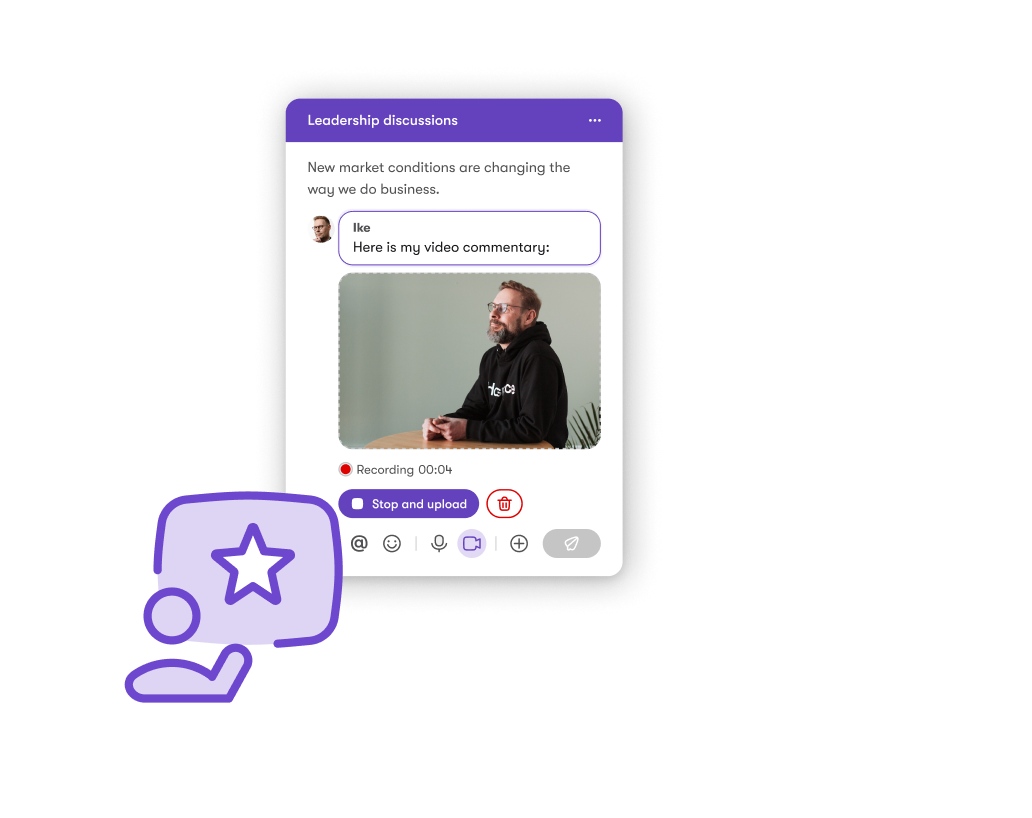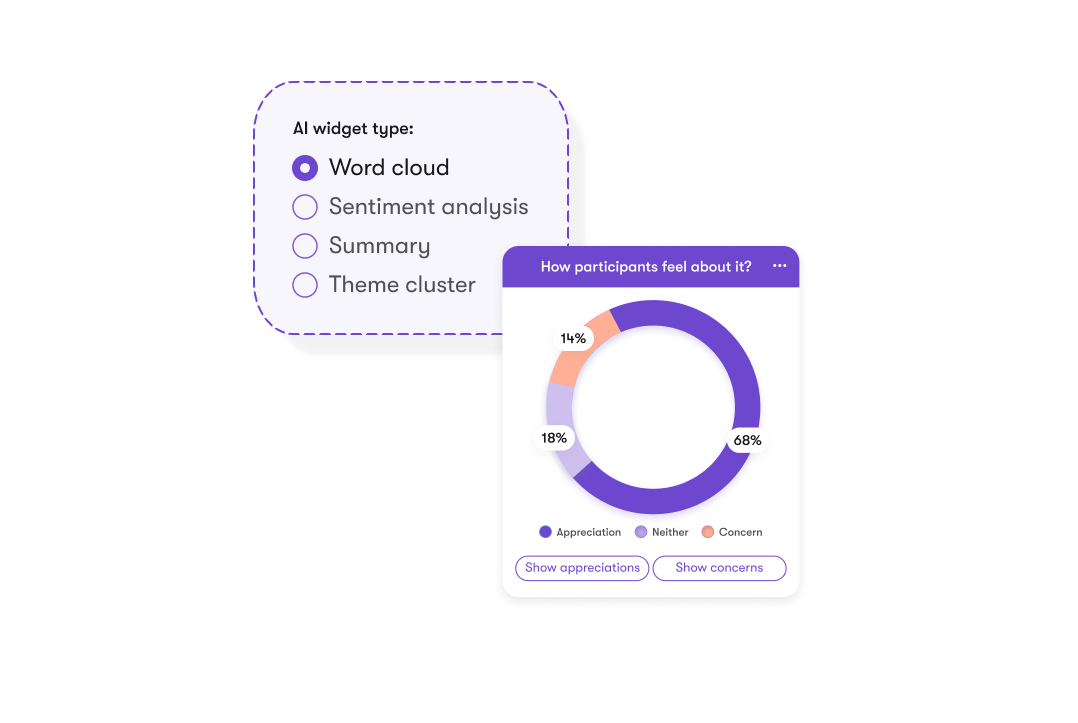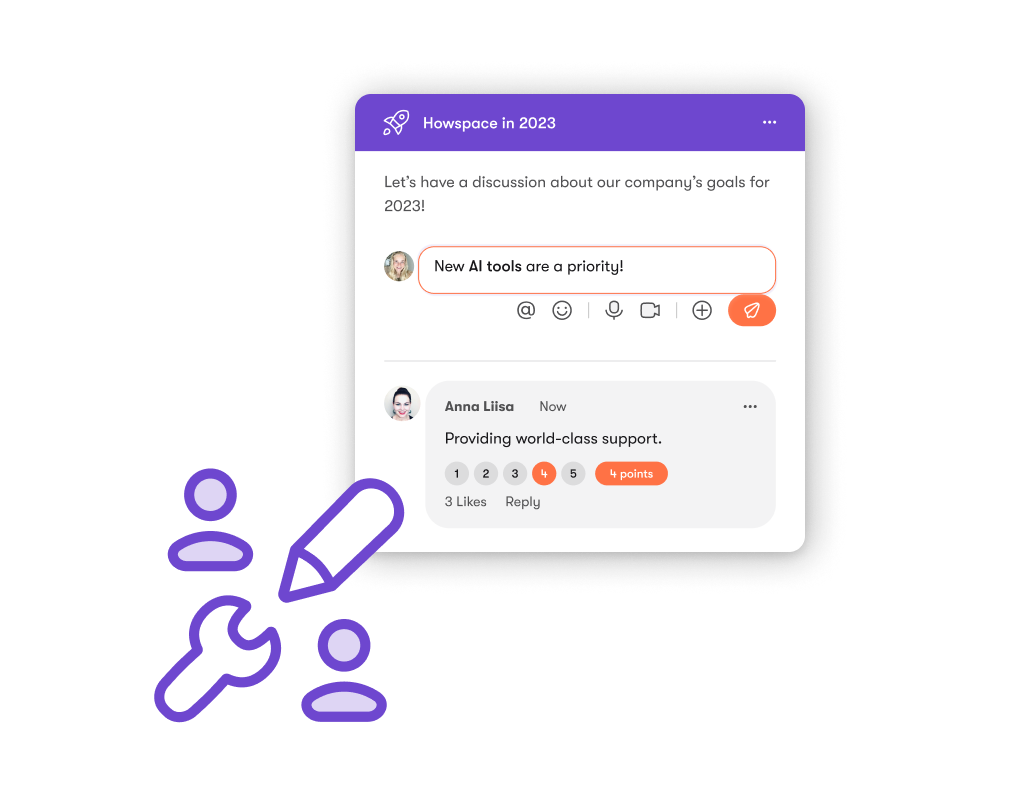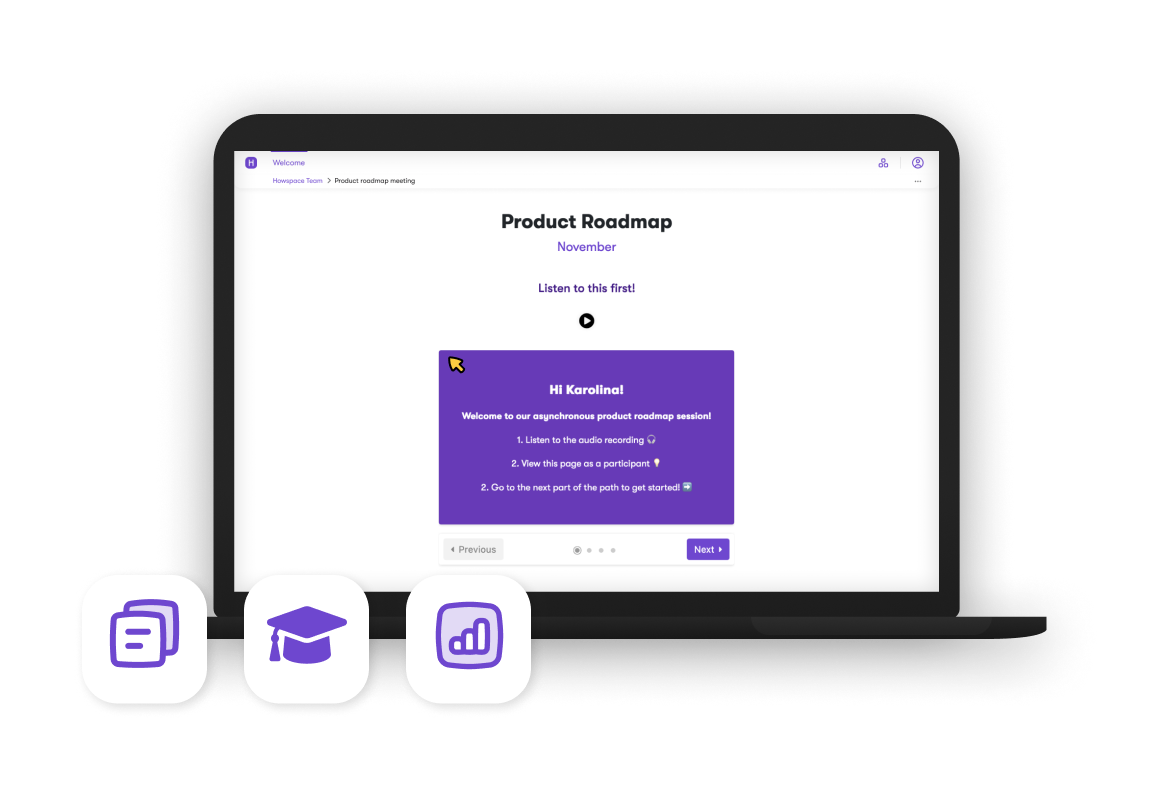Involve your people in transformation
Better alignment, faster results, and lasting impact! Howspace is the transformation platform to engage everyone in impactful change.
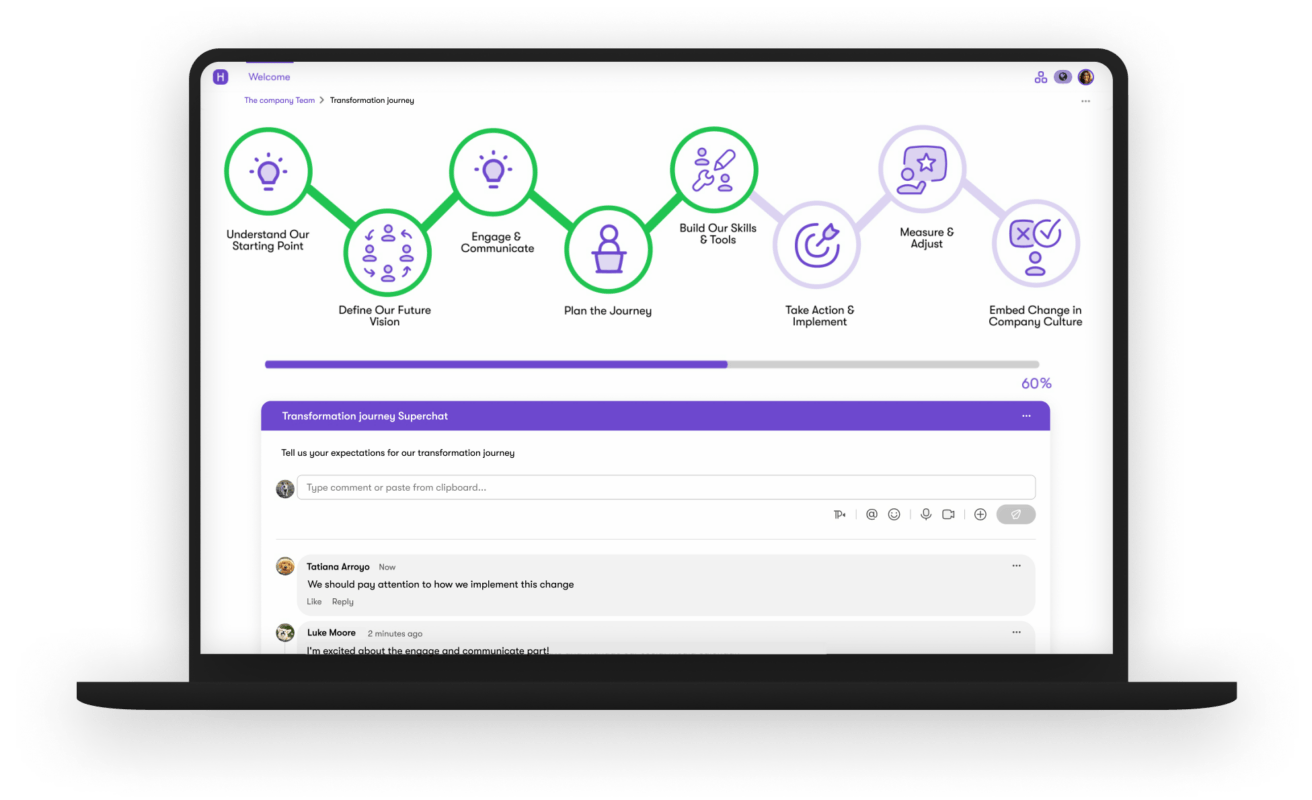
Trusted by
A simple platform to manage the complexities of transformations.
Increased engagement at scale

Greater inclusivity & diverse voices

Faster alignment & decision making

Lasting impact & culture change

Stronger resilience to new challenges


Use cases
Your solution, as you build it
For every organization looking to build lasting success
A diverse array of organizations spanning multiple sectors and industries use Howspace to enable large-scale and long-term organizational transformation.
Elements of a transformation process
Build transformative impact by involving everyone with continuous mini-interventions
Ready-made templates to kick-start your transformation journey
View all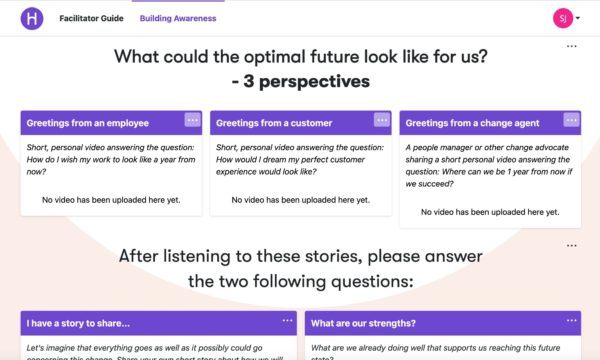
ADKAR: Awareness Stage
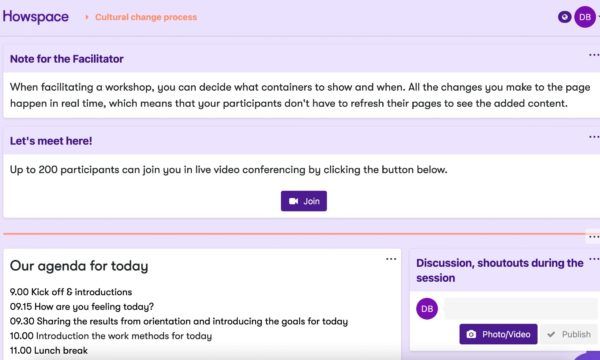
Leading a Change Process
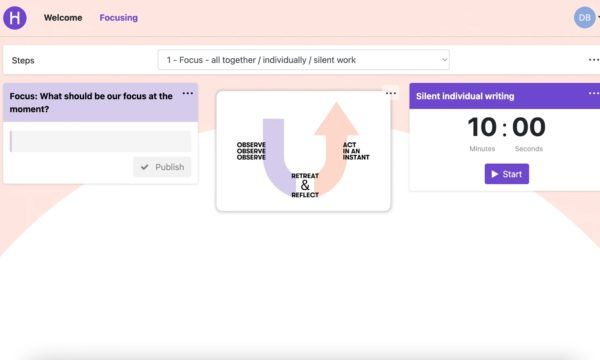
Prioritization for Orgs
Customer stories
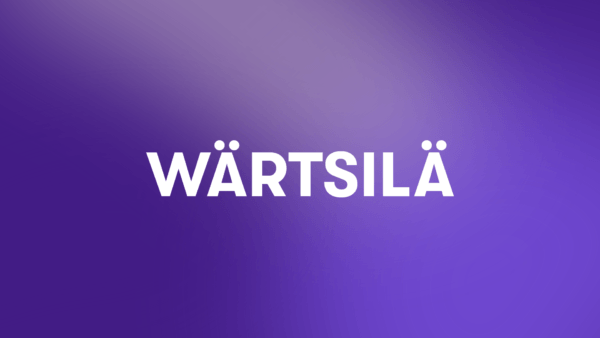
Employee engagement: Wärtsilä Energy involved all levels in strategy work
Wärtsilä energy decided to change their strategy – and how to plan it – by consulting the organization in order to adapt to the changing industry.
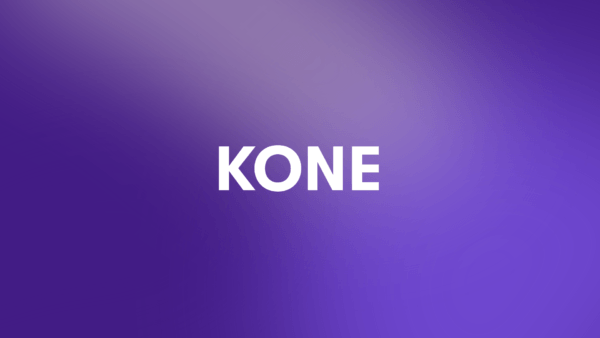
Powered by the people: Elevator company KONE renewed its values with all 60,000 employees
KONE Corporation is a pioneer in building a community culture. Howspace supported KONE on its journey to develop the company culture and renew its values.
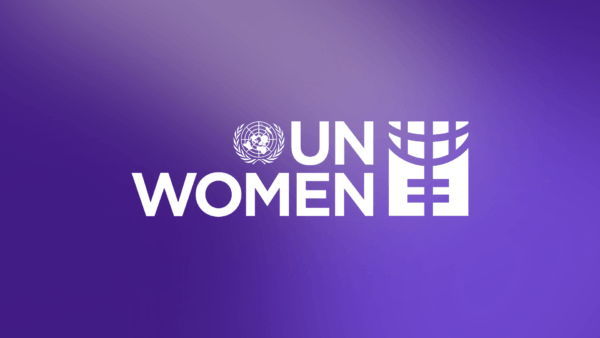
UN Women gives diverse voices a seat at the table through an AI-powered online platform
UN Women brought diverse voices to the table through the Generation Equality Forum Public Conversation platform—held on Howspace.
What our customers say

“Now I know what I want to do when I grow up! A world-class strategic planning facilitator, using real-time artificial intelligence in online workshops. This is not science fiction; this is already possible – I saw it in Howspace.“
Piritta Van Der Beek
CEO, Grape People Finland

“Howspace is the ultimate digital enablement of great facilitation. You can hold meaningful dialogue at a scale that was never possible. Howspace is how I keep continuity without the pain of other tools where the conversation gets lost and people feel like their contributions to the dialogue don’t matter. In Howspace, we are able to keep things alive even when virtual and asynchronous!”
Michael Leckie
Founding partner, LLC, Silverback partners

“Howspace creates an environment that feels safe, as the platform can be adjusted to the customer’s brand. This inspires people to share thoughts and ideas and facilitate change mutually.”
Lisandro Morón,
Senior Manager, Implement Consulting Group
